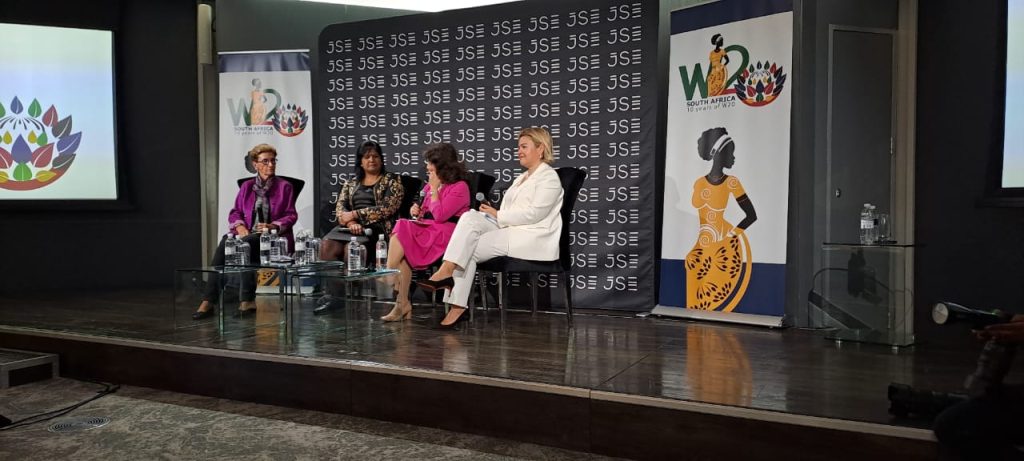
Delegates at the Women 20 (W20) Summit sounded the kudu horn at the Johannesburg Stock Exchange (JSE) today. The ceremony issued a powerful call to advance financial inclusion and entrepreneurship for women worldwide. The event reflected global cooperation and a shared responsibility to promote equitable access to finance, leadership, and opportunity.
Turning Policy into Measurable Progress
Discussions focused on moving from commitment to implementation. Representatives agreed that many countries and companies have made policy advances on gender equality. Yet, progress remains uneven. The next step is creating systems to measure accountability, ensure women’s participation in financial markets, and close gaps in access to credit and investment.
Irene Natividad, President of the Global Summit of Women, emphasized that inclusive economies thrive when women have equal access to capital, technology, and training. She noted that empowering women entrepreneurs strengthens national economies and builds resilience during uncertain times. Her remarks highlighted the Summit’s theme of linking gender equality to sustainable economic growth.
Building Inclusive Markets and Leadership
Participants emphasized the importance of expanding women’s roles in corporate and financial leadership. They highlighted how innovative market structures such as gender-lens investing and digital financial platforms can reduce barriers for women-led enterprises. To reinforce this progress, they pointed to practical measures like mentorship networks and procurement policies that prioritize women-owned businesses, all vital to building inclusive and resilient economic ecosystems.
Maria Ariza, CEO of Mexico’s Bolsa Institucional de Valores (BIVA), shared how modern exchanges can support women-led companies. She explained that increasing women’s visibility in capital markets drives growth and encourages investors to diversify their portfolios. Her perspective reinforced the idea that inclusion should be foundational in global finance, not an afterthought.
South Africa’s Niroshma Chetty, CEO of Engie Africa’s Avon and Dedisa Peaking Power plants, reflected on the energy sector’s role in advancing gender-responsive policies. She noted that the just energy transition must ensure women participate not only as beneficiaries but also as innovators and leaders. Access to renewable energy and equitable employment opportunities are key enablers of inclusive growth.
A Symbolic Call to Action
The kudu horn ceremony at the JSE symbolizes unity, strength, and renewal. For W20 delegates, it represents a global commitment to dismantle economic barriers. The horn sounded a collective resolve to turn ambition into measurable progress. Through its work, the W20 continues to align policy, private investment, and social action, driving a shared vision of equitable, inclusive, and sustainable economic growth.

